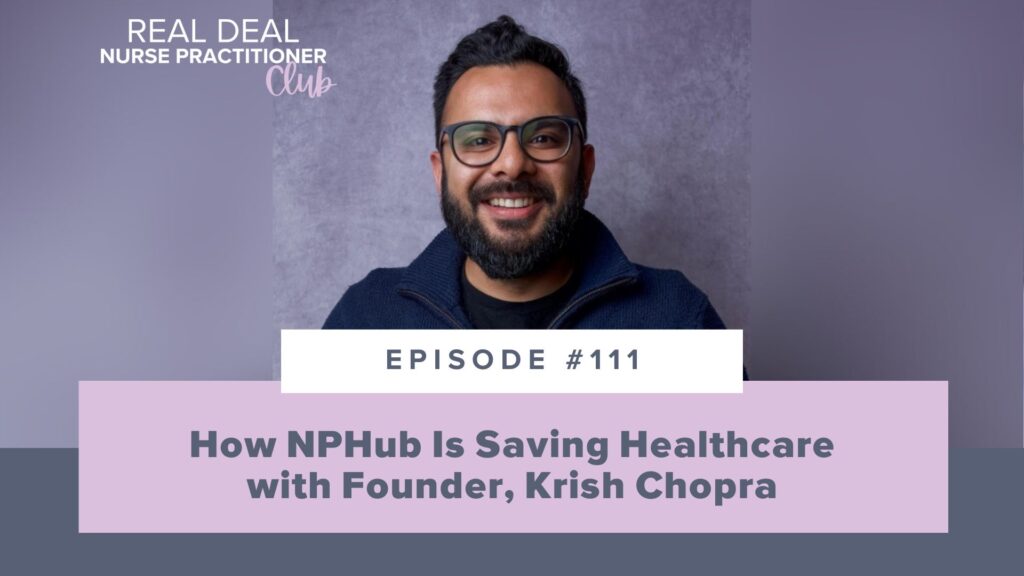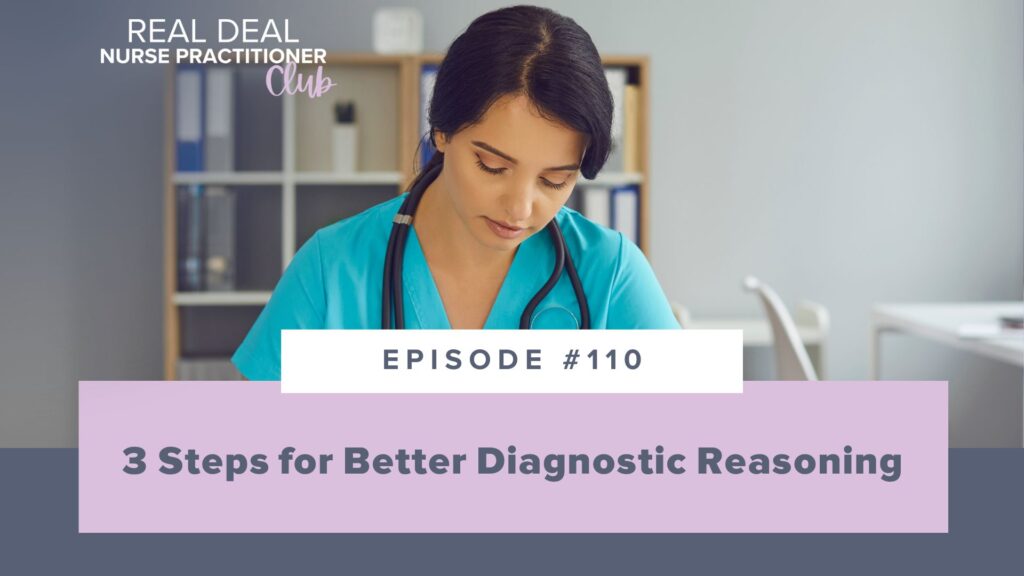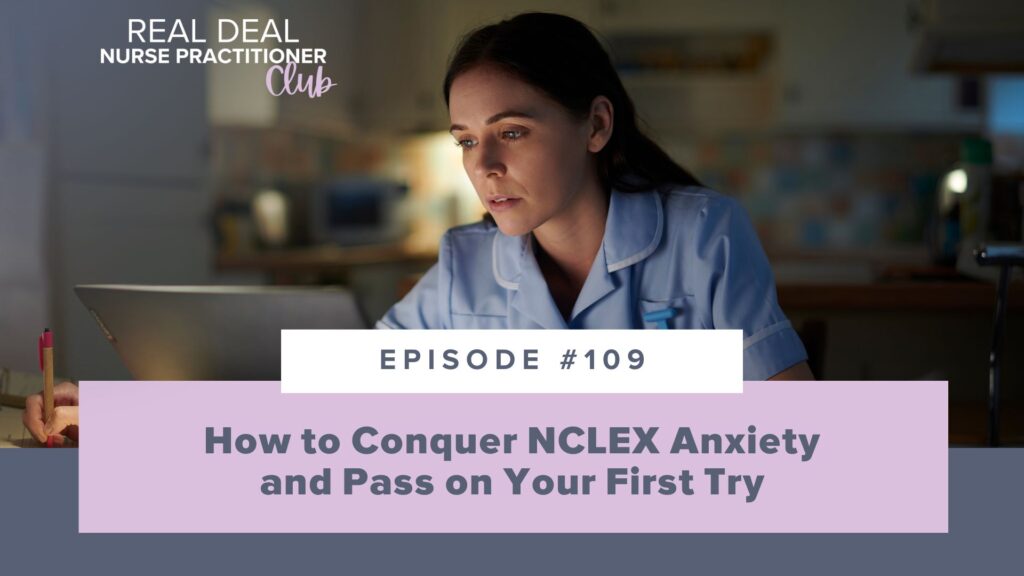Ep #53: Managing Mental Fatigue on Exam Day [NP STUDENT]
- by
- Feb 02, 2022
- Podcasts
![SMNP Blog - Ep #53: Managing Mental Fatigue on Exam Day [NP STUDENT]](https://blog.npreviews.com/wp-content/uploads/2023/04/BASFNP053_YouTube.jpg)
One part of your upcoming test-day experience that a lot of people don’t anticipate is mental fatigue. I promise, you need to be prepared to be exhausted so you’re not taken by surprise on your big day. So, we’re adding managing mental fatigue to your exam-prep checklist this week.
This is another one of those feedback items I get from students over and over. These tests are long and getting tired is inevitable. But how you decide to deal with this mental fatigue and the tools you use will make all the difference in achieving success on exam day.
There are between 150 and 175 questions on your exam, depending on which exam you take, so tune in this week to discover how to prepare yourself mentally so you can concentrate and give your best answers from the very first question to the last. I’m sharing what mental fatigue looks like in an exam, and how to make sure it doesn’t hurt your chances of passing your exam.
My team and I are so excited to announce the release of our new Question Bank! This resource is filled with 1000 questions, and we’ll be adding questions and writing new ones every month, so get your hands on it here!
I have communities available for both students and new nurse practitioners. In these communities, we work to uplift one another and grow this profession together every single day. If this kind of support is what you need, I invite you to join! Click here if you’re a student, and click here if you’re a new NP.
What You Will Discover:
- The point in the exam at which mental fatigue becomes a problem for most people.
- Why even well-prepared students fall into the mental fatigue trap.
- How to prepare yourself in advance for coping with the length of the NP exam.
- Why last-minute cramming always sets you up for a difficult exam-day experience.
- My step-by-step process for managing mental fatigue during your exam.
Featured on the Show:
- If you’re looking for extra support, I have communities available for both students and new nurse practitioners. Click here if you’re a student, and click here if you’re a new NP!
Full Episode Transcript:
Welcome to Becoming a Stress-Free Nurse Practitioner, a show for new NPs and students that want to pass their board exam the first time and make that transition from RN to NP as seamless as possible. I’m your host Sarah Michelle. Now, let’s dive into today’s episode.
Hello, my beautiful friends. Today we’re going to be talking about an often unanticipated part of your upcoming test day experience, mental fatigue. I absolutely promise that this is something that you want to be prepared for way ahead of time, so that way you’re not taken by surprise on your big day. Because this is another one of those feedback items I get from students again and again.
These tests are long. Y’all are going to be tired no matter what. But how you deal with that and the tactile tools you use will make all the difference in your exam day success. And we all know, the more prepared you are before your exam, the better off that you will be when the time comes. And so let’s all add managing mental fatigue to your exam prep checklist starting today.
So to start off this episode, I want to explain a bit further about what I mean by mental fatigue and why it happens during your exam. For those of you listening that are not up to date on the exam details, and that’s okay, at current standpoint, so today AANP is 150 questions and ANCC is 175 questions.
And for most students out there, I feel like the mental fatigue really starts to creep in on you around question 45 to 50 on your exam. And that is because our traditional school exams are right around this amount of questions. We have trained our brains to be on high alert and ready to work for those first 50 or so questions, but we haven’t had a whole ton of experience working our brains past that point.
If you think about it, 175 questions is a lot of questions that is then additionally compounded by a lot of stress and pressure because this is your big certification exam. It’s a huge deal, right? So you’re likely to walk into your exam already tired if you haven’t been managing that anxiety well just from the level of preparation that you’ve been putting in along the way. And not to mention those night before the exam hard to sleep jitters.
And so when we reach this pinnacle point of our exams, which will fall at different points for each of you, but question 50 really tends to be that hallmark time. Mental fatigue can take a lot of different shapes and forms, and each of you are going to have your own mental blocks to work through surrounding this topic. But universally, it tends to look a little something like this.
So, you find yourself reading the exam question and all of a sudden you look down the answer choices and you have no idea what you just read or what the question was even asking. It’s kind of like your brain glitched for a second and even though you did actively read the question, your brain didn’t catch up to comprehend it with you.
Or for some students, you answer a question but then when you reread the question stem, you realize that you picked an answer that was irrelevant to the question being asked, even though this was a fact that you truly knew deep down. And so mental fatigue at its core leads to you checking out of your exam, which is obviously the last thing we want. Because if you’re only at question 50, the majority of your exam, at least two thirds of it actually, still isn’t even complete yet. You’ve got a long road to go.
So then, of course, our question becomes in this episode, how do we deal with this? So Sarah, what am I going to do, right? The good news is that the first step to managing mental fatigue is being aware that it’s happening, just like anxiety, right? Being aware allows us to target it with our tools instead of continuing to stumble through question after question and hurting your chances of actually passing the exam.
And so think back to a long exam you’ve taken and try to pick out which scenario happened to you. Did you trip up on an easy question that you definitely knew? Did you read a question and have no idea what you just read, et cetera? One of the best ways to combat it all along the way throughout your entire exam is to just take a break every 25 questions, no matter how you think you’re feeling, tired or not.
This is actually a tool that a lot of my ADHD test takers also utilize to regain their focus. And so having a little mental reprieve at your desk, or even a quick bathroom break, can be a solid way to reboot those brainwaves and get ready to be in the best spot for the next 25 questions coming up.
And by mental break, I mean that you bare minimum at least look down from your computer. Because a piece of mental fatigue is the eye strain too. And so lay your head down, doodle, do anything that’s not related to taking the exam. Then once you’ve done this for a minute or two and you feel like you’re back in the game, continue on to the next question.
I know this sounds really simple and easy, and that’s because it is. But really, even something this small can work wonders for you retaining your focus and doing well on your exam. For students utilizing this method, I really like them to take a full break, like a true bathroom break in the middle of the exam, just make sure you’re taking enough time to recharge before you’re continuing on.
And of course, take a break anytime, not just every 25 questions if you ever find yourself actively having mental fatigue during a question. The every 25 questions does not have to be a hard and fast rule. It can be done more frequently or as needed too. And so really just find what works best for you.
So now you may be wondering, well, how do I find out what works best for me? My favorite strategy to combat mental fatigue actually occurs before you ever take the exam or walk in. Which means that you can utilize it again and again and again. And this strategy is to practice taking full length practice exams at home. I recommend this to every single student of mine, it’s really twofold.
Number one, it allows you to be aware, remember, awareness is important of where you drop off during the exam. When you finish that full length practice exam, look back, see if there’s anywhere in the exam that you missed five to 10 questions in a row. Because that’s a really great indicator that you are mentally checking out. And so note where that point is so you know to take a break at that point during your real life exam.
Number two, exam taking is a skill y’all. You are going to need to practice to build up your stamina. If you practice a full length exam at least three to four times, you’re going to be ahead of the game when it comes to your exam day. You’re going to have a degree of mental toughness that those testing around you will not. And every advantage on your exam day counts.
I also absolutely want to include the caveat here that when you practice a full length exam at home, make it count. Do not start up a 175 question exam when you don’t have the time to dedicate to it or if you’re going to stop and restart several times. That is not truly practicing your skill set for your exam day, because during your exam you’re going to have to keep forging forward. And that’s the piece you really need to nail down.
How can I forge forward in the most efficient way possible, where I’m still comprehending and answering questions correctly? I really feel like practicing several full length tests ahead of time is your best bet, but I would be sorely amiss here if I didn’t include one last strategy.
One way to guarantee that you will walk into your exam exhausted before you ever start, is if you try to study the day before and oh my gosh, even worse, the day of your exam. These are two huge no nos. Truly, all that last minute studying and cramming just clouds your brain and flusters what you know. By the time you get to 24 hours before your exam, you know what you know, I promise.
I know it is so hard to turn off the review courses, put away the practice questions, but your brain needs that mental break. When you sit for your exam, you want to walk in as clear and level-headed as possible. No amount of cramming is worth confusing the information that you already knew and had down pat.
Just tell yourself the day before, the longer I study the more tired I’m going to be tomorrow during my exam. The more tired I am, the less likely I am to pass. Here’s also, of course, where I will mention limiting stressors the day of your exam that could exacerbate mental fatigue, like lack of sleep, lack of food, and running late to your exam.
We want to eliminate any extra variables on your exam day. And I know it’s easier said than done, but I’ve heard plenty of horror stories about getting stuck in traffic, not being able to find the testing center, being afraid to go to the bathroom during the exam, et cetera. Eliminate any and all distractions or things that cause you to stress. It’s only going to zap your brain power and we want to put all of those brainwaves towards your exam.
Anything that deviates, your focus needs to be handled or confronted. Take that bathroom break. That’s always the most bizarre feedback to me, people that are afraid to take a bathroom break during the exam. Take a bathroom break, it’s okay. You’ve prepared for this moment, you know your material, and we don’t want that to all be a wash because you are mentally checked out of your exam.
I also want to pause here and note that for me personally, my mental fatigue was much worse with a AANP specifically, even though it’s technically a shorter exam than ANCC. This was due to the fact that there was nothing to break up those AANP questions. And what I mean by this is that it’s an all black and white exam with long winded multiple choice questions after long winded multiple choice question. There was really nothing for me to break up the monotony of the exam.
With ANCC though, it was in color. And I swear that helps. And there were a variety of question styles, which broke things up really nicely and helped me to regain my focus along the way. And so I definitely think that’s something to consider when you are choosing your upcoming exam, along with the fact that I also think ANCC broke up my mental fatigue because it had extra what I feel like are anxiety tools in the exam, where you could highlight strikeout, et cetera. And so that kind of woke my brain back up too.
And so people are always asking me which exam is easier, and I can tell you wholeheartedly, the content is equally as difficult on both exams. But when it came to managing my mental fatigue, that is one time I will actually say that ANCC was a little bit easier for me.
And so to sum up this episode for you, practice, practice, and practice some more. That will hands down be your best defense against the dreaded exam day fatigue, outside of taking those regular breaks that we discussed here today. And even with practice, you won’t be able to overcome it entirely. And that is fine, as long as you are aware when it is happening.
These are just long exams, and they have to be this long to ensure that you are going to be both a safe and competent new nurse practitioner. With these tools though, and by building up that mental stamina, you will be just fine for your upcoming exam day. And you can even use this episode as a little gentle nudge to log into my question bank today and complete one of those 175 question tests in exam mode to practice.
That’s it for this week, guys. I’ll talk to you soon. As always, I am absolutely rooting for you and your success. You’ve got this.
As an extra bonus, friends, if you’re looking for support no matter what phase of your nurse practitioner journey that you’re currently in I have communities available for both students and new nurse practitioners. In these communities, we work to uplift one another and grow this profession together every single day. Links to join will be included for you in the show notes.
Thanks for listening to Becoming a Stress-Free Nurse Practitioner. If you want more information about the different types of support we offer to students and new NPs, visit https://www.npreviews.com/resources. See you next week.
Enjoy the Show?
- Don’t miss an episode: follow the podcast on Spotify, Apple Podcasts, Stitcher, or RSS.
- Leave a review in Apple Podcasts.
Search the Blog
Join our Facebook Group!
Get FREE support and encouragement from thousands of NP students and our NP Support team.
Learn More3 Study Hacks to Conquer Your NP Exam!
Download these tips that have helped thousands of students pass their NP board exams.
Download NowInstitutional Partnerships
Are you a faculty member and would like to bring Sarah Michelle’s resources to your school? Email us at nursinggroups@blueprintprep.com for special institutional pricing or click on the link below to learn more.
Learn MoreGroup Discounts
Are you a student and have 10 or more classmates interested in purchasing Sarah Michelle’s courses? Email us at nursinggroups@blueprintprep.com for special pricing.




